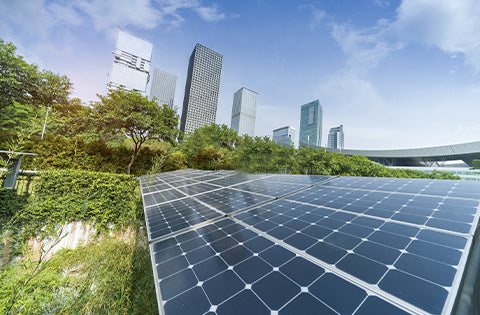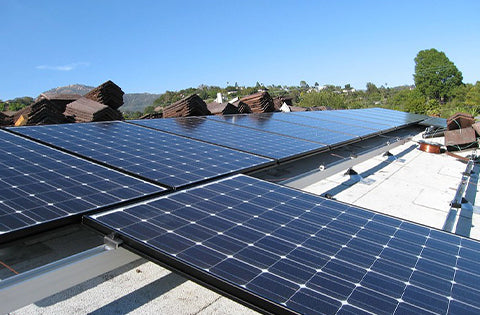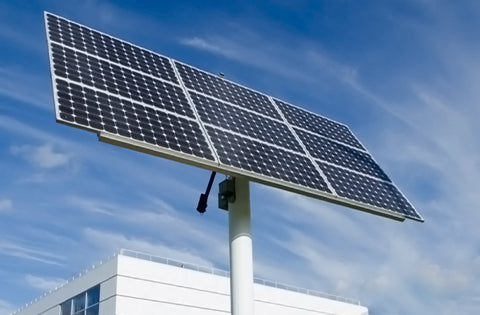As you already know, the sun offers an abundant supply of energy for those who tap into its power supply. Most people who install solar panels tap into their district’s power grid, but as COVID has shown us, it’s possible to detach from the grid entirely. With remote work available and more people seeking self-sufficiency, we can live in remote locations and be entirely energy independent with an off-grid solar system.
What is an off-grid solar system?
If you live off the grid, it implies that you are entirely autonomous. However, you can incorporate certain aspects of off-grid living into a residential home without going all out. With off-grid solar, you obtain your home’s power supply from the sun with the help of solar panels, batteries, and inverters. You aren’t dependent upon your local utility company to provide your home’s electricity. But this isn’t the only thing that answers what off-grid vs. on-grid solar systems is.
The benefits of off-grid solar
Solar energy is great for your wallet, perfect for your off-grid energy needs, and good for the environment. Solar significantly reduces your environmental footprint by supplying you with an emissions-free and clean energy source. Installing an off-grid solar system requires an upfront investment, but it saves you money on your electric bill over the long term. The amount you save depends on factors, such as where you live, how much sunlight hits your solar panels, and what your local utility company charges for electricity. Most people find that they can save anywhere from $10,000 to $30,000 over their solar system’s life cycle.
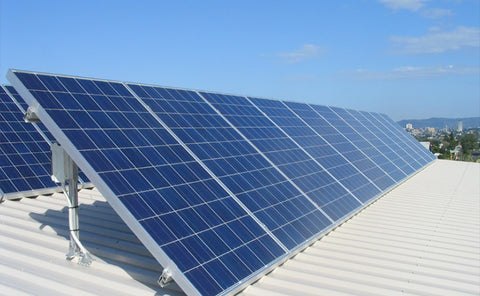
How does an off-grid solar system work?
Aside from the solar panels, the most critical component to a fully functioning off-grid solar system is the battery bank. Since the home’s electricity is entirely independent of a utility company, the autonomous system relies on stored power when the solar panels cannot take in enough solar energy to supply household needs.
You need sufficient solar panels to power your home in an off-grid system while also sending excess energy to the batteries. After the sun goes down or on cloudy days, you’ll draw power from the batteries. So, you also need a large enough battery bank to store the energy you need to operate electric appliances, lights, and technology.
What is needed for an off-grid solar system?
Let’s look at an off-grid solar power system in terms of the individual components you need to make it work. These systems require these four primary components to function:
1: Solar panels
Most off-grid systems use monocrystalline solar panels. These provide more efficient power than the polycrystalline panels, which is essential when you are off-grid. The number of panels you need depends on what the electricity load and usage are in your home.
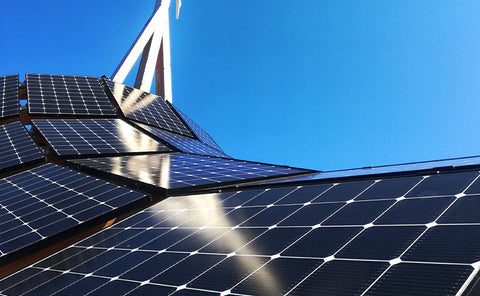
2: Charge controller
The charge controller is critical in keeping your batteries sufficiently charged without overloading them. The controller adjusts the flow of energy between the panels and the batteries. A maximum power point tracking controller is more reliable than a pulse width modulation controller in preventing battery overload.
3: Inverter
An inverter is necessary to convert the DC power stored in the batteries into your home’s AC power. You need to make sure you get one large enough to handle the peak electricity load in your home.
4: Batteries
Batteries are essential in an off-grid system. You’ll need enough of them to store a sufficient amount of electricity. The most efficient and safest type of battery for off-grid solar is the lithium-ion phosphate battery. They also allow you to expand your battery bank without compromising its integrity.
SOLARPARTS has everything you need for your home’s off-grid solar system. We offer complete kits to meet your needs and your situation. These kits come pre-wired, making installation a breeze. We also have all of the individual components you’ll need to build the off-grid system you desire. Contact us though the following ways.We’re ready to help you achieve energy independence on your terms!
Twitter: Solarparts Instagram: Solarparts
Tumblr: Solarparts Pinterest: Solarparts
Facebook: Shenzhen Solarparts Inc
Email address: Philip@isolarparts.com
Homepage: www.isolarparts.com
